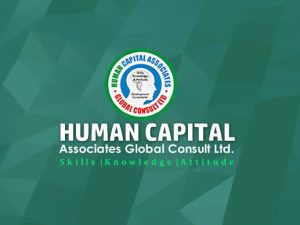Workshop on Condition Based Maintenance Management and Reliability Best Practices
January 22 – 26, 2024, 1st Run: Lagos & Port Harcourt
July 15 – 19, 2024, 2nd Run: Lagos & Abuja
For Tutor -Led Class: 9am – 4:30pm
Workshop fee: N300, 000 per Participant
For online: Delivery via Zoom
Online course fee: N250, 000 per Participant
Available for In-plant Training
Program overview:
Conditioned-based maintenance (CMB) is a maintenance strategy that monitors the actual condition of an asset to decide what maintenance needs to be done. CBM dictates that maintenance should only be performed when certain indicators show signs of decreasing performance or upcoming failure.
The goal of condition based maintenance is to monitor failure so that maintenance can be proactively scheduled when it is needed – and not before. Asset conditions need to trigger maintenance within a long enough time period before failure, so work can be finished before the asset fails or performance falls below the optimal level.
Reliability best practice on the other hand, is a process to ensure that assets continue to do what their users require of them in their present operating context. Reliability best practice incorporates preventive and corrective maintenance activities, along with predictive testing and inspection (PT&I) and other actions to provide optimal balance to achieve greater reliability and lower asset life cycle costs. This course “Conditioned-based maintenance management and reliability best practice” strategies when successfully implemented will lead to increase in cost effectiveness, machine uptime, and greater understanding of the level of risk the organization is managing.
For whom:
This course is designed for maintenance, reliability, engineering and technical support staff including leadership and management of the Maintenance Department. It is equally recommended for and not limited to the followings: Planners, Supervisors, Engineers, Technicians, Reliability Engineers, Maintenance Team (Leaders and Managers) and Operations Team (Leaders and Managers)
Program objectives:
At the end of the program, participants will be able to:
- explain the behaviour and events that are driving costs;
- explain how poor reliability a major factor in organization’s cost management;
- implement a CBM program to improve reliability;
- implement root cause analysis to eliminate defects;
- apply best practice work management to ensure early detection and correction of defects;
- see how Reliability best practice interacts with and supports other elements of maintenance strategy particularly condition-based monitoring;
- acquire hints and tips for practical application of reliability best practice in their own areas of responsibility, fitting it into the overall maintenance organization and strategy; and
- apply key reliability improvement methodologies and tools to improve reliability performance.
Course outline:
DAY 1: Equipment Life-cycle and Cost Management
- Definitions of Reliability, Condition Based Maintenance & Asset Management
- The Concept of Costs, Capital, Profits and Return on Investment
- The Real Cost of Unanticipated Failure
- Asset Performance Standards
- Types of Asset Failure and Degradation
- Causes and Nature of Asset Failure and Degradation
- The Effects, Cost and Risks of Asset Degradation
DAY 2: Failure Analysis and Reliability
- Reliability Models
- Learning from Major Failures Case Studies in Process Industries
- Examples of the Planning Process
- Hazard Function and Bath Tub Curve
- Weibull Analysis
- Case Studies from Rotating Equipment
- Case Studies of Major Failures in other Industries
- Root Cause Analysis of failures in rotating equipment
- Reflection on Why Systems Fail
DAY 3: Condition Based Maintenance
- General Purpose of Condition Based Maintenance
- The P-F Curve Principles of Vibration Monitoring
- Thermal Monitoring
- Acoustic Emission
- Lubricant Monitoring
- Use of CBM Tools: (Practical Session)
- Accelerometer
- Vibrometer
- Degradation Analyzers
- Oil Analyzers
- Thermometric Analyzers
- Voltage Analyzers
- Current Analyzers
- Maintenance Software
DAY 4: Decision Analysis in Asset Management and Best Practices
- Failure Data Collection and Analysis
- The Impact of Chronic Failures vs. Intermittent Failures
- Focus Improvement through Pareto Analysis
- Quantify losses in Life Cycle Terms
- Rigorous Root Cause Analysis Techniques
- Discussion of Software and Templates to Support Analysis
- The Decision-Making Grid Approaches
- Selection of Appropriate Maintenance Strategies
- Integration of RCM, TPM and CBM Approaches for best practices
DAY 5: Work Management: Converting Strategy to Practice/ Human Factors
- Work Identification and Defect Reporting
- The Importance of Backlog
- Planning for Quality and Reliability
- Scheduling for Efficiency
- Work Logistics and Preparation
- Checklists and Practical Aspects Work Quality Control
- The impact of human factors on reliability performance
- Gaining buy in beyond just the maintenance team
- How to get people to own reliability?
- Developing a reliability culture
- Discussions and Evaluation
Training Methodology
Lectures, discussions, exercises, case studies, audio-visual aids will be used to reinforce these teaching/learning methods.
Related Courses






